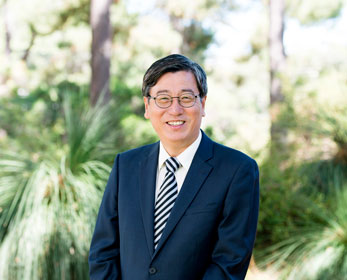Forget about retinol night creams, researchers from Edith Cowan University (ECU) believe travel could be the best way to defy premature ageing.
For the first time, an interdisciplinary study has applied the theory of entropy to tourism, finding that travel could have positive health benefits, including slowing down the signs of ageing.
Entropy is classified as the general trend of the universe towards death and disorder. The entropy perspective suggests that tourism could trigger entropy changes, where positive experiences might mitigate entropy increase and enhance health, while negative experiences may contribute to entropy increase and compromise health.
"Ageing, as a process, is irreversible. While it can't be stopped, it can be slowed down," ECU PhD candidate Ms Fangli Hu said.
Ms Hu noted that positive travel experiences could enhance individuals' physical and mental wellness through exposure to novel environments, engagement in physical activities and social interaction, and the fostering of positive emotions. These potential benefits have been acknowledged through practices such as wellness tourism, health tourism, and yoga tourism.
"Tourism isn't just about leisure and recreation. It could also contribute to people's physical and mental health," Ms Hu added.
Travel therapy: Slowing down the clock
Travel therapy could serve as a groundbreaking health intervention when viewed through an entropy lens, she added. As an important aspect of the environment, positive travel experiences may help the body sustain a low-entropy state by modulating its four major systems.
Tourism typically exposes people to new surroundings and relaxing activities, and novel settings can stimulate stress responses and elevate metabolic rates, positively influencing metabolic activities and the body's self-organising capabilities. These contexts may also trigger an adaptive immune system response.
Ms Hu said that this reaction improves the body's ability to perceive and defend itself against external threats.
"Put simply, the self-defence system becomes more resilient. Hormones conducive to tissue repair and regeneration may be released and promote the self-healing system’s functioning."
"Leisurely travel activities might help alleviate chronic stress, dampen overactivation of the immune system, and encourage normal functioning of the self-defence system. Engaging in recreation potentially releases tension and fatigue in the muscles and joints. This relief helps maintain the body's metabolic balance and increases the anti–wear-and-tear system's effectiveness. Organs and tissues can then remain in a low-entropy state," Ms Hu explained.
Travel encompasses physical activities such as hiking, climbing, walking, and cycling. Physical exertion can boost metabolism, energy expenditure, and material transformation, all of which help coordinate self-organising systems.
"Participating in these activities could enhance the body’s immune function and self-defence capabilities, bolstering its hardiness to external risks. Physical exercise may also improve blood circulation, expedite nutrient transport, and aid waste elimination to collectively maintain an active self-healing system. Moderate exercise is beneficial to the bones, muscles, and joints in addition to supporting the body's anti–wear-and-tear system," Ms Hu said.
On the flip side, the research has pointed out that tourists could face challenges such as infectious diseases, accidents, injuries, violence, water and food safety issues, and concerns related to inappropriate tourism engagement.
"Conversely, tourism can involve negative experiences that potentially lead to health problems, paralleling the process of promoting entropy increase. A prominent example is the public health crisis of COVID-19."
The Principle of Entropy Increase: A Novel View of How Tourism Influences Human Health was published in the Journal of Travel Research earlier this year.

 Tourism isn't just about leisure and recreation. It could also contribute to people's physical and mental health.
Tourism isn't just about leisure and recreation. It could also contribute to people's physical and mental health.




